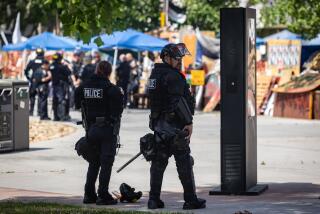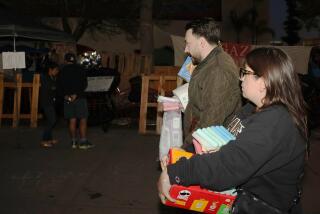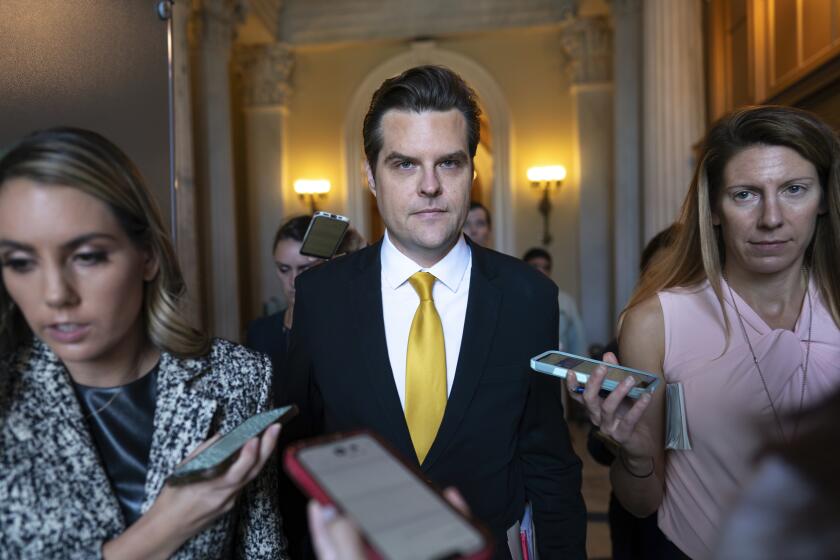Occupy L.A.: The eviction that wasnât
As Mayor Antonio Villaraigosaâs deadline for Occupy L.A. drew near, hundreds of people hurried toward the encampment on the grounds of City Hall, as if the tower were a signpost in the dark. Protesters carried their now-familiar signs, and revolutionary book sellers set out their wares. Sympathizers brought crates of food, Occupy tourists brought their dogs, and drummers supplied a continuous beat.
As the hour of eviction approached Sunday night, volunteer medics tensely inventoried remedies for tear gas and pepper spray. Near the steps of the south entrance to City Hall, leaders did their âhuman microphoneâ shout-out of instructions on how to get arrested.
âSit down and let your body go limp. Take a deep breath,â a woman advised.
âTake a deep breath!â the crowd shouted back, passing it along.
âAnd ground yourself,â she said.
âAnd ground yourself!â they responded.
âFifteen minutes!â shouted another organizer.
âFifteen minutes!â
But the witching hour came and went. In the black sky, a police helicopter hovered. Scores of police hung back, cordoning off nearby streets. A young woman smiled giddily as she posed next to a solemn-faced officer in riot gear like a tourist mugging with the guards at St. Jamesâ Palace. Her friend snapped a photo.
The eviction that didnât evict anyone seemed more like a successful dress rehearsal. The LAPD that turned out was not the one that scattered protesters and media during a May Day rally a few years backâ and thatâs evidence of progress. But when dawn came Monday, the City Hall grounds were still full of tents.
That raises the question of whether anything was gained by the show of force. Did this peaceful nonconfrontation bring Occupy L.A. closer to a conclusion? Or just show the occupiers how much leverage they had by marshaling extra people? And what, if anything, will bring this eccentric but not terribly disruptive demonstration to an end?
Ever since the Occupy protests began, they have been in search of both a goal and a foe. Yet the demonstrators were welcomed by the mayor and the City Council, and their movement was applauded for starting a national conversation on income and wealth inequality. Now what? The protesters donât have a visceral enemy in Los Angeles. Nor do public officials have any urgent reason to push them out.
After the police stood down Monday morning, protesters remained uncertain about what the endgame should look like.
At the Revolution Books table, Nicole Lee explained: âItâs a protracted struggle.â
âCarla Hall
More to Read
A cure for the common opinion
Get thought-provoking perspectives with our weekly newsletter.
You may occasionally receive promotional content from the Los Angeles Times.










